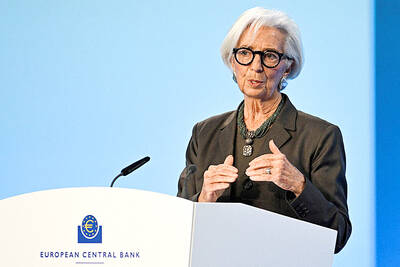The number of people employed in the nation’s industrial and service sectors increased in October as business activity picked up amid eased concerns over COVID-19, the Directorate-General of Budget, Accounting and Statistics (DGBAS) has said.
With domestic consumption on the rise, the hospitality and food and beverage industry, which had been hit hard by virus fears, saw the number of employees rise near the level before a local COVID-19 outbreak was detected in May, the agency said.
The number of people employed in the industrial and service sectors totaled about 8.15 million at the end of October, up 31,000, or 0.38 percent, from the previous month.

Photo: CNA
It was the fourth consecutive month of increase in employment, it said.
The number of people working in the hospitality and food and beverage industry rose 11,000 from a month earlier, while the number of employees in the support service industry, which largely comprises travel agencies, as well as the entertainment, and arts and leisure industries, rose 5,000 each, the data showed.
Employment figures have improved since the government downgraded a national COVID-19 alert level, easing restrictions on people’s movement, DGBAS Census Department Deputy Director Chen Hui-hsin (陳惠欣) said.
The Double Ten National Day holiday and government-issued NT$5,000 Quintuple Stimulus Vouchers also boosted domestic consumption, which caused businesses to hire more workers, she said.
The number of employees in the hospitality and food and beverage industry as of the end of October was only 3,000 fewer than the figure in April, as consumers have become more willing to spend, Chen said.
The number of people employed in the hospitality and food and beverage industry grew by about 10,000 per month in the past few months, she said.
However, the number of employees in the entertainment, and arts and leisure industries was still 16,000 fewer than the number in April, as restrictions on KTV parlors were not eased until October, Chen said.
Relaxing COVID-19 concerns also helped wages to grow, she said.
In October, the average monthly regular wage in the industrial and service sectors was NT$43,593, up NT$214, or 0.49 percent, from a month earlier, the DGBAS said.
The October figure was also up 2.21 percent from a year earlier, the agency added.
Average monthly earnings, which comprise regular wages and non-regular wages, such as overtime pay and bonuses, was NT$50,042, down 3.9 percent from a month earlier, but up 4.61 percent from a year earlier.
In the first 10 months of this year, the average regular wage and average monthly earnings rose 1.82 percent and 2.91 percent from the previous year respectively, to NT$43,088 and NT$56,387.
However, after inflationary adjustments, the average regular wage and average monthly earnings rose only 0.01 percent and 1.8 percent respectively.

European Central Bank (ECB) President Christine Lagarde is expected to step down from her role before her eight-year term ends in October next year, the Financial Times reported. Lagarde wants to leave before the French presidential election in April next year, which would allow French President Emmanuel Macron and German Chancellor Friedrich Merz to find her replacement together, the report said, citing an unidentified person familiar with her thoughts on the matter. It is not clear yet when she might exit, the report said. “President Lagarde is totally focused on her mission and has not taken any decision regarding the end of

French President Emmanuel Macron told a global artificial intelligence (AI) summit in India yesterday he was determined to ensure safe oversight of the fast-evolving technology. The EU has led the way for global regulation with its Artificial Intelligence Act, which was adopted in 2024 and is coming into force in phases. “We are determined to continue to shape the rules of the game... with our allies such as India,” Macron said in New Delhi. “Europe is not blindly focused on regulation — Europe is a space for innovation and investment, but it is a safe space.” The AI Impact Summit is the fourth

CONFUSION: Taiwan, Japan and other big exporters are cautiously monitoring the situation, while analysts said more Trump responses ate likely after his loss in court US trading partners in Asia started weighing fresh uncertainties yesterday after President Donald Trump vowed to impose a new tariff on imports, hours after the Supreme Court struck down many of the sweeping levies he used to launch a global trade war. The court’s ruling invalidated a number of tariffs that the Trump administration had imposed on Asian export powerhouses from China and South Korea to Japan and Taiwan, the world’s largest chip maker and a key player in tech supply chains. Within hours, Trump said he would impose a new 10 percent duty on US imports from all countries starting on

STRATEGIC ALLIANCE: The initiative is aimed at protecting semiconductor supply chain resilience to reduce dependence on China-dominated manufacturing hubs India yesterday joined a US-led initiative to strengthen technology cooperation among strategic allies in a move that underscores the nations’ warming ties after a brief strain over New Delhi’s unabated purchase of discounted Russian oil. The decision aligns India closely with Washington’s efforts to build secure supply chains for semiconductors, advanced manufacturing and critical technologies at a time when geopolitical competition with China is intensifying. It also signals a reset in relations following friction over energy trade and tariffs. Nations that have joined the Pax Silica framework include Japan, South Korea, the UK and Israel. “Pax Silica will be a group of nations